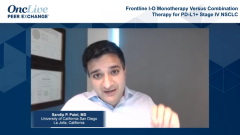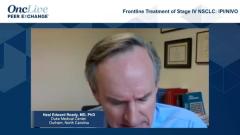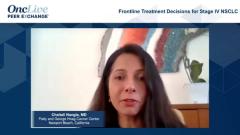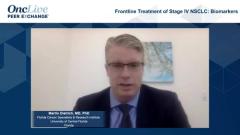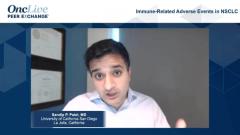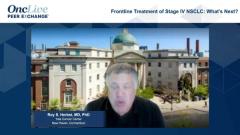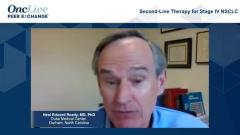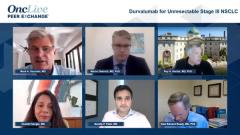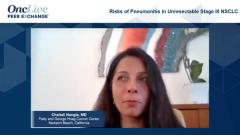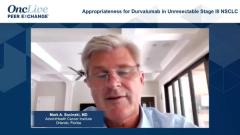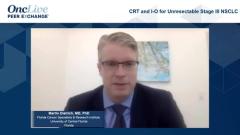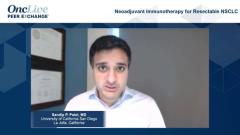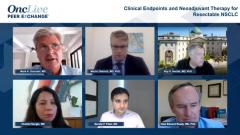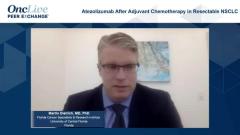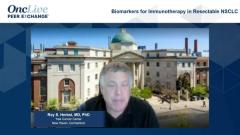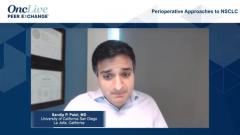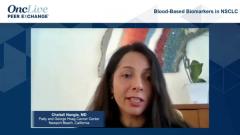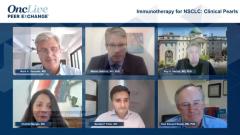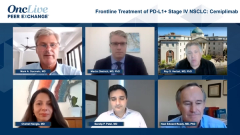
CRT and I-O for Unresectable Stage III NSCLC
Martin Dietrich, MD, PhD, describes his interpretations of the KEYNOTE-799 study of pembrolizumab plus chemoradiation therapy for unresectable stage III non–small cell lung cancer.
Episodes in this series

Sandip P. Patel, MD: Martin, what's your interpretation of variations in the timing of immunotherapy in particular with the KEYNOTE-799 study?
Martin Dietrich, MD, PhD: KEYNOTE-799 was a nonrandomized study that looked at 2 separate dosing schedules for a mixed and a nonsquamous cord. Cord A had an induction cycle of chemotherapy with a platinum doublet plus pembrolizumab and basically followed by 6 cycles of weekly carboplatin-taxol
and immunotherapy. Cord B was basically overlapping with recycles of chemotherapy where radiation therapy was started on cycle 2. I thought the study was very interesting. There was a tremendous amount of response rate, an almost 90% disease control rate, and 80% of these responses lasted to about 1 year of therapy. So, this was a very impressive standalone data. What was also interesting to see is that there was not a big difference in terms of toxicity between the two, so it seemed in line with what we've historically seen with chest radiation, with regards to pneumonitis, and not a substantial increase from a safety standpoint. Now the primary end point here was overall response rate where we see the efficacy very strong but what I'm struggling with for this trial is where to place it in the era of PACIFIC and how to move forward. I think this data seems very competitive, and if this is found to be valid in a larger trial then I could very well see this could be practice-changing. But in the absence of a basic interventional component, it is very challenging to place but certainly thought provoking. My impression is the earlier I can get immunotherapy started, the better. We certainly had patients that had very close follow-up to immunotherapy, and obviously look at in PACIFIC-2 to overlap radiation therapy with immunotherapy. I believe this is going to be helpful, and we're seeing this also in the surgical spaces, the earlier you introduce immunotherapy, the healthier the organism the host immune system is. I think the better response to immunotherapy you will see but as a standalone study, 7.9 was not more than good food for thought in some safety evaluation with impressive standalone data, nonetheless, but I think this will need some additional follow-up for the study.
Mark A. Socinski, MD: I agree with those comments. It is nice to be talking about optimal strategies in stage III. How do we integrate with the standard-of-care chemo in radiotherapy? So fortunately, our colleagues in radiation oncology with their technology have gotten much better with targeting the tumor and limiting dose to normal tissue. And I think that gives new therapies an advantage in this setting.
TRANSCRIPT EDITED FOR CLARITY


